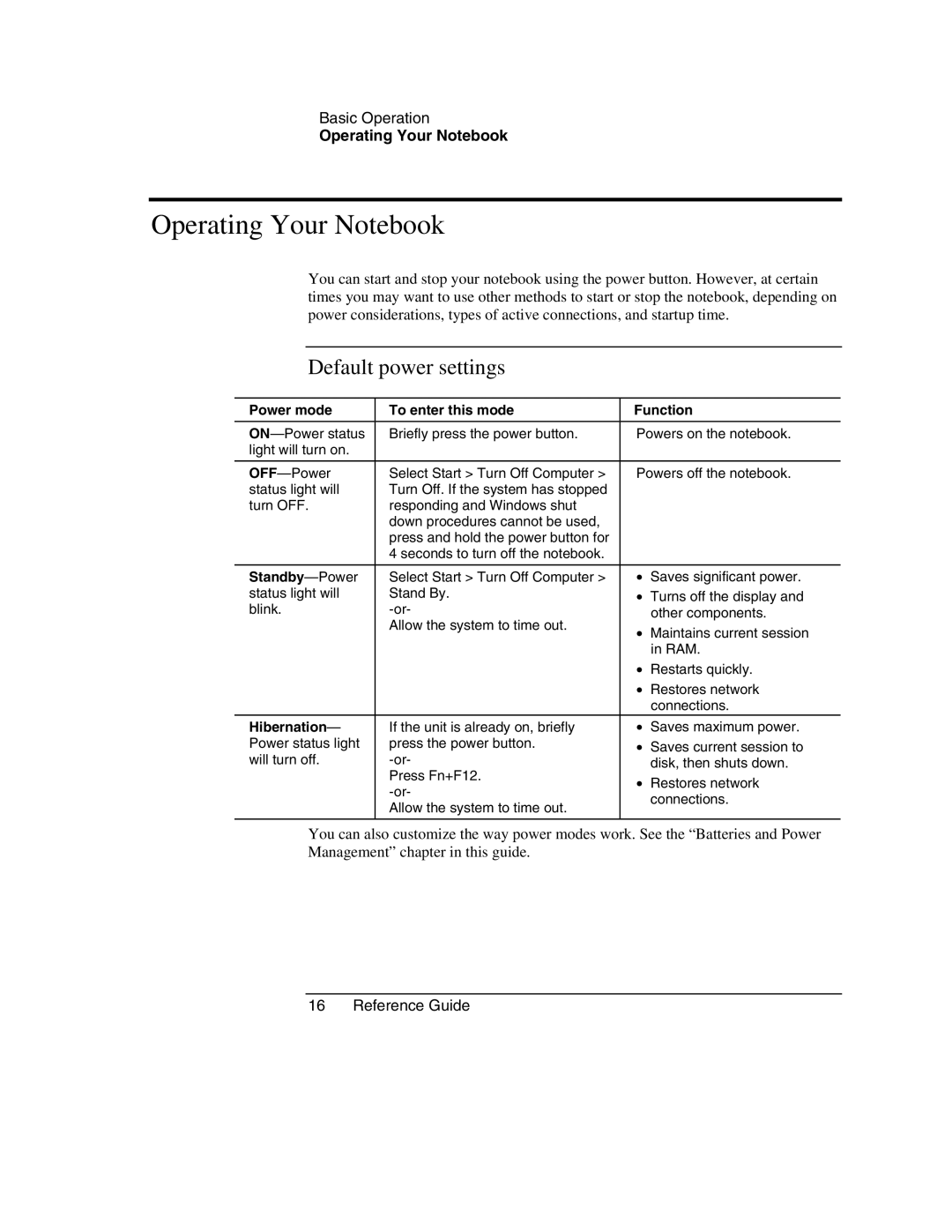
Basic Operation
Operating Your Notebook
Operating Your Notebook
You can start and stop your notebook using the power button. However, at certain times you may want to use other methods to start or stop the notebook, depending on power considerations, types of active connections, and startup time.
Default power settings
Power mode | To enter this mode | Function | |
|
|
| |
Briefly press the power button. | Powers on the notebook. | ||
light will turn on. |
|
|
|
|
|
| |
Select Start > Turn Off Computer > | Powers off the notebook. | ||
status light will | Turn Off. If the system has stopped |
|
|
turn OFF. | responding and Windows shut |
|
|
| down procedures cannot be used, |
|
|
| press and hold the power button for |
|
|
| 4 seconds to turn off the notebook. |
|
|
|
|
|
|
| Select Start > Turn Off Computer > | • | Saves significant power. |
status light will | Stand By. | • | Turns off the display and |
blink. |
| other components. | |
| Allow the system to time out. | • | Maintains current session |
|
| ||
|
|
| in RAM. |
|
| • | Restarts quickly. |
|
| • | Restores network |
|
|
| connections. |
Hibernation— | If the unit is already on, briefly | • | Saves maximum power. |
Power status light | press the power button. | • | Saves current session to |
will turn off. |
| disk, then shuts down. | |
| Press Fn+F12. | • | Restores network |
| |||
|
| connections. | |
| Allow the system to time out. |
| |
|
|
| |
|
|
|
|
You can also customize the way power modes work. See the “Batteries and Power
Management” chapter in this guide.
